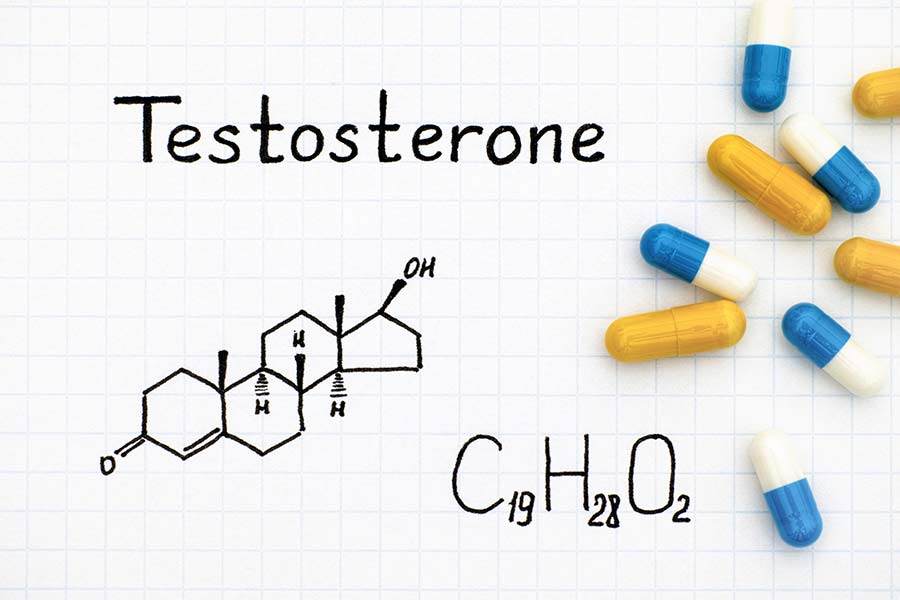4 Surprising Facts Re: the Role of Testosterone in Addiction and Recovery

In that same spirit of raising awareness about little-known issues in men’s health, this blog will take a closer look at the role of testosterone in addiction and recovery. What many men and the people who love them don’t know and need to know, is that there is an undeniable relationship between the male sex hormone (which men have far more of) and the nature of an addiction, its impact, and your path to recovery.
As evidence, consider these eye-opening revelations from the world of addiction science:
- Research points to a rising epidemic of low testosterone in men, a main cause of which is excessive alcohol use and opiates. When men use alcohol or opiate drugs—heroin, in particular—over a long period, their brain stops producing Luteinizing Hormone (LH); but LH, when secreted, is what stimulates the production of testosterone, which in addition to being essential for the production of sperm is a main vehicle of sex drive.
When your LH shuts down, the result can be a loss of sexual interest and activity. It’s therefore not uncommon that when I ask an intravenous heroin user when they last had sex, they will look at me blankly and say “a long time ago.” By the time their addiction has progressed to that level of severity, they are no longer engaged in a sexual relationship.
I have a theory about why this happens, and it goes as follows: If you are doing something to your body that is not good for it (like drugs or alcohol), your brain is not going to let you reproduce (by, for example, reducing your T levels and in turn your drive to reproduce). This may be why testosterone is suppressed by reportedly 50 percent in men who use opiates. Testosterone is a biological precondition for reproduction, after all.
- Low testosterone can give rise to various symptoms that can contribute to substance use. Low T levels reportedly can contribute to sleep problems, lower motivation and/or self-confidence, and feelings of sadness or depression— all of which are potential triggers for substance use.
- High testosterone is associated with higher levels of violence, aggression, and acting out— a problem that is often exacerbated by stimulant drugs. This can happen, for example, when a stimulant prescription drug like Adderall is prescribed for Attention Deficit Hyperactivity Disorder. Testosterone supplements can cause similar issues.
- Certain Medication-Assisted Treatments (MATs) affect testosterone levels. This is important to bear in mind if you or a man in your life has been prescribed a MAT in early recovery. For example, the medication naltrexone, which is often prescribed to relieve alcohol cravings, can dramatically increase testosterone.
Which of these four facts about testosterone in relation to addiction and recovery was most eye-opening to you, and why? Share your responses below!

